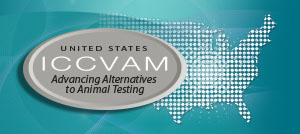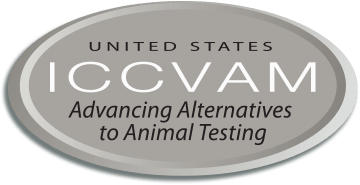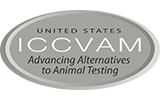Participation in the International Cooperation on Alternative Test Methods
The International Cooperation on Alternative Test Methods (ICATM) was created to foster dialog among national validation organizations. This dialog facilitates international cooperation in the critical areas of validation studies, independent peer review, and development of harmonized recommendations. ICATM includes member organizations from the European Union, United States, Japan, Canada, and South Korea. Brazil and China have been participating in ICATM since 2015 as observers.
ICATM Participant Organizations
- ICCVAM is an interagency committee of the U.S. government that coordinates technical reviews of alternative test methods and cross-agency activities relating to validation, acceptance, and harmonization of test methods. NICEATM administers ICCVAM and provides scientific support for its activities.
- EURL ECVAM (European Union Reference Laboratory for Alternatives to Animal Testing) is a unit within the Institute of Health and Consumer Protection in the European Union’s Joint Research Centre. EURL ECVAM coordinates the validation of alternative test methods in the European Union.
- JaCVAM (Japanese Center for the Validation of Alternative Methods) coordinates the evaluation of alternative test methods for the Japanese National Institute of Health Sciences, its parent organization.
- Health Canada’s Environmental Health Science and Research Bureau coordinates the evaluation of alternative test methods in Canada. The Canadian Centre for Alternatives to Animal Methods and its subsidiary, the Canadian Centre for the Validation of Alternative Methods, participate as partners with Health Canada in ICATM activities.
- KoCVAM (Korean Center for the Validation of Alternative Methods) is part of the National Institute of Food and Drug Safety Evaluation of the South Korean Food and Drug Administration.
- BraCVAM (Brazilian Center for the Validation of Alternative Methods) functions as the focal point within Brazil to identify or receive requests for test method validation. It works to implement appropriate validation studies with the National Network of Alternative Methods to the Use of Animals within the Brazilian Ministry of Science, Technology, Innovations, and Communications.
An ICATM coordination meeting was hosted virtually by JaCVAM in October 2020. Representatives from the United States, European Union, Canada, Japan, South Korea, and Taiwan presented updates on recent activities. Discussion topics included.
- The concept of standards and approaches to validation that could replace multi-laboratory studies.
- Activities to address European recommendations on use of non-animal derived antibodies.
- Development of detailed review papers and integrated approaches to testing and assessment.
- Human-relevant approaches to assessing the eye irritation potential of agrochemical formulations.
In 2020, EURL ECVAM issued recommendations on use of non-animal derived antibodies. The EURL ECVAM recommendations were based on a scientific advisory committee review that found that:
- Animal-free technologies are able to produce affinity reagents with equal or better quality than that offered by antibodies produced using the conventional animal-based methods.
- Use of animal-free affinity reagents provides scientific benefits.
Use of animal-free affinity reagents was discussed at the 2020 ICCVAM Communities of Practice webinar. A webinar series co-organized by NICEATM, EURL ECVAM, and the PETA Science Consortium International e.V. and presented in July-November 2020 explored international activities in this area in more detail.
ICATM partner representatives from the United States, Japan, and the European Union presented updates at the October 2021 “International Symposium on Alternatives to Animal Testing in Taiwan."
ICCVAM member agency scientists serve on management teams or peer review panels for test method validation studies conducted by ICATM partners. Since 2018, a NICEATM scientist has been serving on the management team for a validation study led by JaCVAM. The validation management team has been evaluating the sensitivity and specificity of luciferase-based assays for the detection of relevant cytokines as individual components of the multi-immunotox assay. The multi-immunotox assay is intended to be used as a comprehensive screening assay to identify potentially immunotoxic chemicals by assaying the activity of T cells and dendritic cells.
The following ICCVAM workgroups had ICATM member liaison representatives during 2020 and 2021.
|
ICCVAM Workgroup |
ICATM Organizations with Liaison Members |
|---|---|
|
Acute Toxicity Workgroup |
EURL ECVAM, KoCVAM |
|
In Vitro to In Vivo Extrapolation Workgroup |
JaCVAM |
|
Read Across Workgroup |
JaCVAM |



